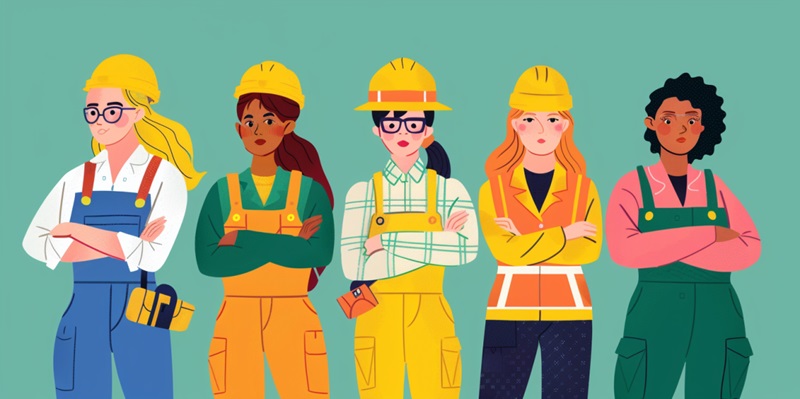The field service industry has remained predominantly male-dominated, with significant gender disparities in sectors like HVAC, where women represent a mere fraction of the workforce. While stereotypes about physical strength and technical skills persist, and concerns about work-life balance and safety prevail, there’s a growing recognition of the unique value women bring to the table.
Tackling Stigma and Stereotypes
Confronting Outdated Perceptions
Societal stigmas and stereotypes have long hindered women’s entry into field service roles. The biased belief that women lack the required physicality or technical acumen needs to be systematically addressed to pave the way for more balanced gender representation. Acknowledging the accomplishments of women who have broken through these barriers is not just about celebrating individual success; it’s a critical step in redefining what’s possible and expected within the industry. When companies publicly recognize and commend the work of their female technicians, it sends an impactful message that undermines outdated perceptions.
Importance of Flexibility and Safety
Concerns over rigid schedules and the safety of women working in isolation are valid deterrents that companies need to tackle. Flexibility in work hours and clear safety policies are essential in creating a conducive environment for women in the field service industry. Employers can take a proactive stance by offering flexible hours and highlighting the importance of a work-life balance. Meanwhile, robust safety measures and protocols, especially for women working independently on-site, can alleviate fears and demonstrate the company’s commitment to their employees’ welfare, thereby fostering a more inclusive and attractive workplace.
Strategies for Attracting and Retaining Women
Investing in Training and Education
Targeted training and educational programs can spark women’s interest in the field service industry. Offering apprenticeships and support for technical students are proactive steps toward attracting female talent. By investing in these initiatives, companies not only contribute to the individual growth of future employees but also bolster the industry’s talent pool with diverse perspectives. Moreover, education and hands-on experience can empower women with the confidence and skills necessary to excel in a competitive, historically male-dominated space.
Adapting to Employee Needs for Retention
To retain employees, companies should offer flexible roles and advancement opportunities. Sharing success stories, such as women moving from field service roles to senior leadership, can illustrate the potential career paths within the industry. Retention goes beyond just hiring, it requires a commitment to nurturing employees’ career aspirations and recognizing the evolving needs of the workforce. When a company demonstrates adaptability by supporting career transitions or skill development, it not only retains talent but also strengthens its reputation as an employer that values and invests in its team.
Refining Recruitment Techniques
Crafting Inclusive Job Descriptions
Inclusive job descriptions should highlight diverse working environments and detail company policies that support work-life balance. This can communicate to women candidates that they are valued and that their needs are understood. Crafting job posts that resonate with women by showcasing the inclusivity of the workplace can challenge the perception that field services isn’t a viable option for them. It’s about creating a narrative that invites women to envision themselves in these roles and excelling within them.
Promoting Internal Career Paths
Outlining clear paths for internal progression can show prospective female employees the opportunities for growth. Highlighting women in senior roles can serve as a powerful recruitment tool. It’s crucial for companies to visibly champion the achievements of their female employees and establish mentorship programs to guide newcomers through their career trajectories. This approach not only helps in attracting talented women to the field but also in building a culture of empowerment and support within the organization.
Nurturing Diversity and Innovation
Emphasizing the broader benefits of gender diversity, such as improved operational effectiveness and innovation, can motivate industry-wide shifts towards more inclusive practices. As the industry evolves, so should the strategies to dismantle barriers and welcome women into these traditionally male-dominated spaces. Diversity in the workforce is not just about fairness or equality, it’s a strategic advantage that can lead to a richer pool of ideas, improved problem-solving, and competitive innovation in service delivery. By nurturing diversity, the field service industry can set a new standard of excellence—one that is representative and more aligned with the world it serves.

